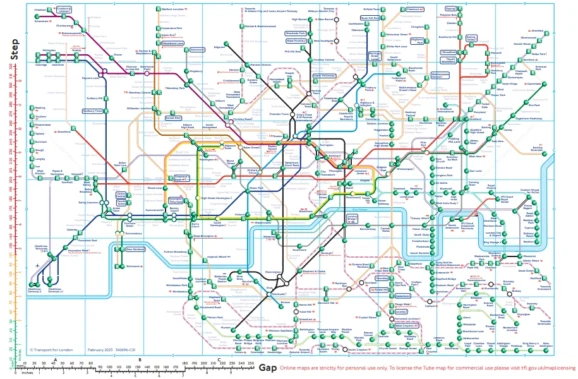Is tech ready for Gen Z?

A new survey by GMAC reveals that Gen Z’s career aspirations are not altogether aligned with the see-saw nature of the tech industry. Nalisha Patel explains
Higher education institutions and businesses must understand the career goals and aspirations of the younger generations in order to plan ahead and create the opportunities that will attract the best talent. In today’s constantly evolving world, Gen Z has been on everyone’s minds, and for good reason. Born roughly between 1997 and 2012, they are the most recent generation to step into the workforce, with perhaps more unique perspectives and priorities than we’ve seen with previous generations.
The importance of understanding Gen Z’s career aspirations cannot be overstated. They represent the future of the workforce, and their choices and values will shape industries, companies, and even economies for years to come.
As employers and educators, it’s essential to gain insights into what Gen Z values in their careers, what industries they are drawn to, and how they navigate the changing landscape of work. GMAC’s ‘Gen Z in the GME Pipeline 2023’ report aims to do exactly that. It provides insights into current and future trends in hiring, compensation, skills demand, and perceptions of applicants to MBAs and business masters courses. The report covers the most important topics, such as future skills, desires, and ambitions post-graduation.
One of the top factors considered by Gen Z as important for their future careers is stability and security. They express a desire for financial independence, dependable employers, and the pursuit of fulfilling personal lives alongside their professional goals.
This is not so surprising considering Gen Z has had to live through a pandemic, mass job losses, and a complete change in how we work – the majority will never know the feeling of working five days in the office.
The pandemic has caused over half of Gen Z students worldwide to alter their career aspirations. The world has been disrupted in unprecedented ways, leading people to reconsider their priorities, and Gen Z’s flexibility and readiness to reassess their career goals in response these unavoidable factors are crucial traits that businesses should consider.
This is not to say that these changes to work have created a lazy generation. Quite the opposite, our research shows that Gen Z are very ambitious, wanting to address some of the world’s most pressing issues. However, they are also aware of the challenges and risks that come with working in a fast-changing and competitive industry, and they are looking for ways to mitigate them through education, skills, and networks.
Indeed, one way they are doing this is by considering the type of industry they are entering. Amongst different sectors, the tech industry always stands out as an attractive choice, seemingly due to its potential for both financial success and personal growth. However, beneath their aspirations lies underlying uncertainty about the stability of the Tech job market. And this comes with good reason – post-pandemic, tech companies have laid off 100,000s of employees, fuelling the desire for job security in Gen Z that is now making them question the attractiveness of working in the tech industry.

Turning their backs on tech?
Let’s be clear, Gen Z are not averse to working in the tech industry. Tech companies are still some of the most attractive to this generation, who are the most digitally literate to enter the workforce yet. Typically, generation after generation has been more and more interested in working in a sector that has seen nonstop growth, until now that is. That’s why the fact that the data shows that millennials are more interested in working in tech than Gen Z presents a seismic shift in the job market.
Instead, our report reveals that almost half of Gen Z candidates are keen to pursue a career in the finance industry due to stable career opportunities with high-paying opportunities. Finance and technology are increasingly entwined, exemplified by over $10bn being deposited into Apple’s savings account this year. Consequently, tech companies should seize the opportunity to align with Gen Z’s ambition by customising opportunities that cater to their interest in the field of finance.
Gen Z’s perspective on success extends beyond professional achievements, encompassing their personal lives too. This holistic approach marks a notable departure from the traditional idea that career success alone equates to fulfilment, with the emphasis on personal success mirroring their yearning for a well-rounded life. Gen Z is resolute in attaining their objectives, not only within their careers but also within their personal relationships, health, and overall well-being.
As a part of achieving this, work-life balance has emerged as a critical factor in Gen Z’s career decisions. The report revealed that Gen Z highly values the opportunity to dedicate time and flexibility to pursue their personal interests and savour their lives beyond the workplace. They consider this an essential factor in enhancing their mental wellbeing and work performance, which reflects their desire to lead well-rounded lives, where career success is balanced with personal fulfilment.
For the tech industry, this perspective is particularly relevant. Gen Z’s inclination towards personal success is mirrored in their aspirations within the tech sector; when they consider careers in technology, they want to see the potential for both professional growth and personal fulfilment.
While there are similarities to the behaviour of previous generations as they enter the workforce, the dynamics are undeniably undergoing a significant shift with the entrance of Gen Z. They bring with them a unique blend of ambition, adaptability, and a strong desire for personal success that encompasses both their professional and personal lives. The world they have grown up in, marked by disruptions and uncertainties, has made them resilient and flexible in redefining their career aspirations. Gen Z are interested in the tech industry, but is also exploring more stable work; it is clear that the value placed on work-life balance presents a challenge to an industry that has been tumultuous these last few years.
As we step into the future, the question of whether the tech industry is truly ready for Gen Z becomes increasingly important. By acknowledging the ambitions of this generation, promoting stability, and embracing their desire for a well-rounded life, we not only prepare the tech industry for the Gen Z influx but also lay the foundation for a brighter future for all of us.
About the Author

Nalisha Patel is the Europe Regional Director at the Graduate Management Admission Council (GMAC), a
non-profit established in 1953 that works with business schools worldwide. GMAC regularly conducts market research, including the Corporate Recruiters Survey.














